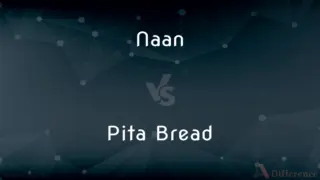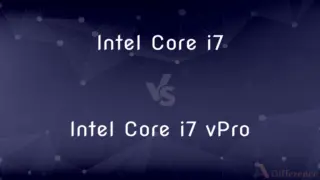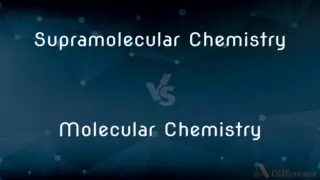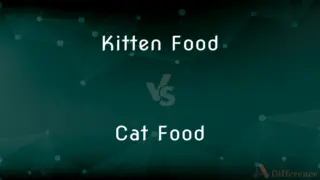Soft Computing vs. Hard Computing — What's the Difference?
By Tayyaba Rehman — Published on January 6, 2024
Soft Computing is an approach that allows for approximation and tolerance for imprecision, focusing on flexibility and human-like decision-making. Hard Computing is based on precise models and exact calculations, emphasizing accuracy and definitiveness.

Difference Between Soft Computing and Hard Computing
Table of Contents
ADVERTISEMENT
Key Differences
Soft Computing includes methodologies like fuzzy logic, neural networks, and genetic algorithms that are designed to mimic human decision-making by allowing for ambiguity and approximation. It is particularly useful in complex systems where precise solutions are not feasible. Hard Computing, in contrast, relies on traditional algorithms and precise mathematical models, suitable for problems with well-defined and exact solutions.
Soft Computing is adaptable and can deal with real-world complexities where data may be incomplete or imprecise. It's often used in artificial intelligence and machine learning applications. Hard Computing demands complete and accurate data inputs, following rigid rules and algorithms, commonly found in traditional computing and engineering applications.
In terms of outcomes, Soft Computing approaches are often more tolerant of errors and can provide acceptable solutions under uncertainty. Hard Computing strives for exactness and precision, where the slightest error or deviation can lead to entirely incorrect results.
Soft Computing is often iterative, learning from errors and refining over time, making it ideal for adaptive systems. Hard Computing follows a deterministic approach, where the same input always produces the same output without any variation.
The practical applications of Soft Computing are broad, including robotics, voice recognition, and autonomous systems, where flexibility and learning are crucial. Hard Computing is essential in areas requiring high precision, like financial calculations, scientific computing, and structured data processing.
ADVERTISEMENT
Comparison Chart
Approach
Approximate, flexible, tolerant of imprecision
Precise, rigid, exact
Methodologies
Fuzzy logic, neural networks, genetic algorithms
Traditional algorithms, mathematical models
Application
AI, machine learning, complex systems
Traditional computing, structured data processing
Outcome
Error-tolerant, adaptable
Demands accuracy, deterministic
Use Cases
Robotics, voice recognition, autonomous systems
Financial calculations, scientific computing
Compare with Definitions
Soft Computing
Emphasizes approximation in computation.
Soft computing techniques are used in AI for pattern recognition.
Hard Computing
Follows rigid rules and algorithms.
In hard computing, a specific input always produces the same output.
Soft Computing
Involves flexible, human-like decision-making.
Soft computing is ideal for mimicking human intuition in machines.
Hard Computing
Common in traditional computing applications.
Hard computing dominates in areas like algorithmic trading.
Soft Computing
Tolerant to imprecise data.
Soft computing can work with the vague data often found in natural language processing.
Hard Computing
Provides definitive, exact solutions.
Hard computing is essential in applications like structured database queries.
Soft Computing
Uses methodologies like fuzzy logic.
Fuzzy logic, a type of soft computing, handles imprecise information well.
Hard Computing
Demands complete and accurate data.
Hard computing requires accurate data for reliable engineering simulations.
Soft Computing
Suitable for complex, real-world problems.
Soft computing approaches are used in autonomous vehicle navigation.
Hard Computing
Based on precise calculations and models.
Hard computing methods are used for exact financial forecasting.
Common Curiosities
What is Soft Computing?
An approach in computing that allows for imprecision and approximation, mimicking human reasoning.
Can Soft Computing provide exact solutions?
It typically provides approximate solutions that are acceptable in complex scenarios.
How does Soft Computing handle errors?
It's more tolerant of errors and can adapt and learn from them.
Where is Soft Computing commonly used?
In AI, robotics, and machine learning for handling complex, real-world scenarios.
What is Hard Computing?
A computing approach based on precise calculations and exact mathematical models.
Why is Soft Computing important in AI?
Because it allows AI systems to deal with ambiguity and learn from experience.
What are some methods used in Soft Computing?
Methods include fuzzy logic, neural networks, and genetic algorithms.
Can Hard Computing adapt to changing inputs?
No, it follows deterministic rules, providing the same output for the same input.
What kind of data does Hard Computing require?
It requires complete, accurate, and precise data for processing.
Is Hard Computing suitable for AI applications?
It's less suited for AI due to its need for exactness and precision.
Is Soft Computing useful in data analysis?
Yes, especially in analyzing complex, ambiguous, or incomplete data.
How does Soft Computing differ from traditional computing?
It differs in its flexible, approximation-based approach compared to the exactness of traditional computing.
Are Soft Computing results always reliable?
They are reliable within the context of tolerance for imprecision and approximation.
Can Hard Computing handle fuzzy data?
No, it requires well-defined and structured data.
Which is better for real-time decision-making?
Soft Computing is often better for real-time, adaptive decision-making in complex environments.
Share Your Discovery

Previous Comparison
Psychology vs. Social Psychology
Next Comparison
Naan vs. Pita BreadAuthor Spotlight
Written by
Tayyaba RehmanTayyaba Rehman is a distinguished writer, currently serving as a primary contributor to askdifference.com. As a researcher in semantics and etymology, Tayyaba's passion for the complexity of languages and their distinctions has found a perfect home on the platform. Tayyaba delves into the intricacies of language, distinguishing between commonly confused words and phrases, thereby providing clarity for readers worldwide.
















































